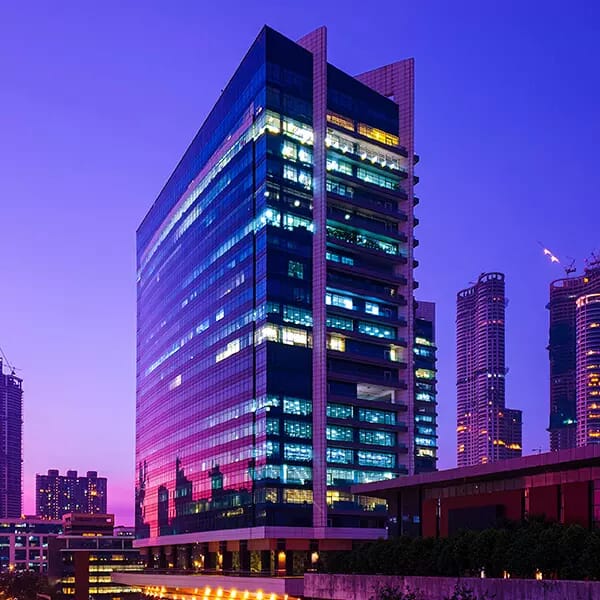 Credit: Pascale Gueret / Shutterstock
Credit: Pascale Gueret / ShutterstockWhat’s in store for the French real estate market in 2022?
March 10, 2022Real Estate
Contextualising the state of the French real estate market
Last month, the GRI Club held the eMeeting French Real Estate Market: the kick-off to 2022, to discuss the current climate of the sector and the forecast for the year ahead. During the event, senior investors, homeowners, lenders and property developers shared their thoughts on the state of values, rates and yields as well as major trends in the local market in order to be ready to tackle 2022.Although French property and capital markets have shown resilience and continued to recover over the past year, some degree of uncertainty remains due to the prevalence of Covid-19, the upcoming presidential elections and the rising inflation rates. Patrick Artus, Global Chief Economist at Natixis, was the keynote speaker of the round table session where the following topics were covered: lessons learned from 2021, risks for 2022, economic prospects, capital markets and interest rates.
With regards to the projections for the new year, executives are mostly optimistic about the rise in consumers’ income and buying power, but question whether there will be a major change in monetary policy in response to inflation and interest rates, and the prices of assets in France. The overall sentiment is that the ECB (European Central Bank) will act with moderation and the interest rates shouldn’t be an issue in 2022.
According to Artus, the GDP has already recovered and reached pre pandemic levels and within a year it should be at the same level as it would be if Covid-19 had not happened. Energy prices, however, will continue to rise as supply has fallen more than demand as fossil fuels are not being sufficiently produced. “We will live in a world of expensive raw materials”, said Laurent Vouin, Head of France/Benelux at Savills Investment Management. Transportation prices will remain expensive, but no more than what it already is today.

Logistics outlook in the French market
On the topic of logistics, Séverine Maumy-Laffineur, Managing Director and Co-Head Portfolio Manager at Barings Real Estate Advisers and GRI Member, has managed investments in the sector that accounted for up to 50% of the fund value in the last year, confirming the increasing demand for this type of asset class.On the subject of the logistics bubble, there seems to be plenty of divergent points of view. In terms of the French market, one could say there’s a bubble because for 30 years, rent prices didn’t increase significantly and since the health crisis they’ve been rising continuously. But, the discussions around the subject have shown the importance of the asset class to so many types of businesses, such as restaurants, grocery stores, e-commerces, etc. Logistics has become a core asset and the pandemic helped pave the way for it.
Read more about the state of logistics in Europe in GRI Club’s Hub News
According to Artus, an American university study about the evolution of commerce just came out and made a bit of noise showing that in Europe, e-commerce is now well above its pre-Covid 19 level but, in the United States it has fallen back below pre pandemic levels, exposing a possible trend to be followed closely: a return to much more traditional form of distribution.
A shift in demand from services to goods is being observed as well. Demand for goods is falling back to normal levels as services are rising again. If you take the OECD block as a whole, “over 2 years consumption of goods by volume has increased by 27% and consumption of services by volume has fallen by 1%. That's monstrous”, comments Artus.
What to expect from the office market in 2022?
The office sector was another asset class that suffered changes as a result of the pandemic and all the restrictions that came with it. Remote work and, as the crisis became more controlled, the hybrid model were to blame for it. Most of the economists had said that logistics and residential were the two assets to pay attention to last year. As people moved away from major cities and city centres, square metres were no longer a priority, leaving investments in offices to a minimum.However, there are still investments being directed towards the office market, “the disaster has not really happened”, declares Artus, as occupancy rates in the best areas of Paris remain satisfactory and there will always be employees to put in offices on a fairly regular basis.
To have a headquarters again, where teams can be reunited in collaborative workspaces and people can finally meet and interact in an environmentally efficient building it’s the current demand for this market. But it is not a simple issue. Employees' car travel time to the office can add up to millions of CO² when adding a couple of days a week of work at the HQ.
In conclusion, the predictions for the year ahead are positive but not without its challenges. Observing market movements and geopolitical outcomes will be paramount to be prepared for the impacts on the industry.
If you want to be a part of important discussions on the real estate market, check out all our upcoming events and apply for an eMembership. GRI Club eMeetings are online roundtable discussions on a specific topic with the participation of key industry players.
Written by Roberta Gomes








